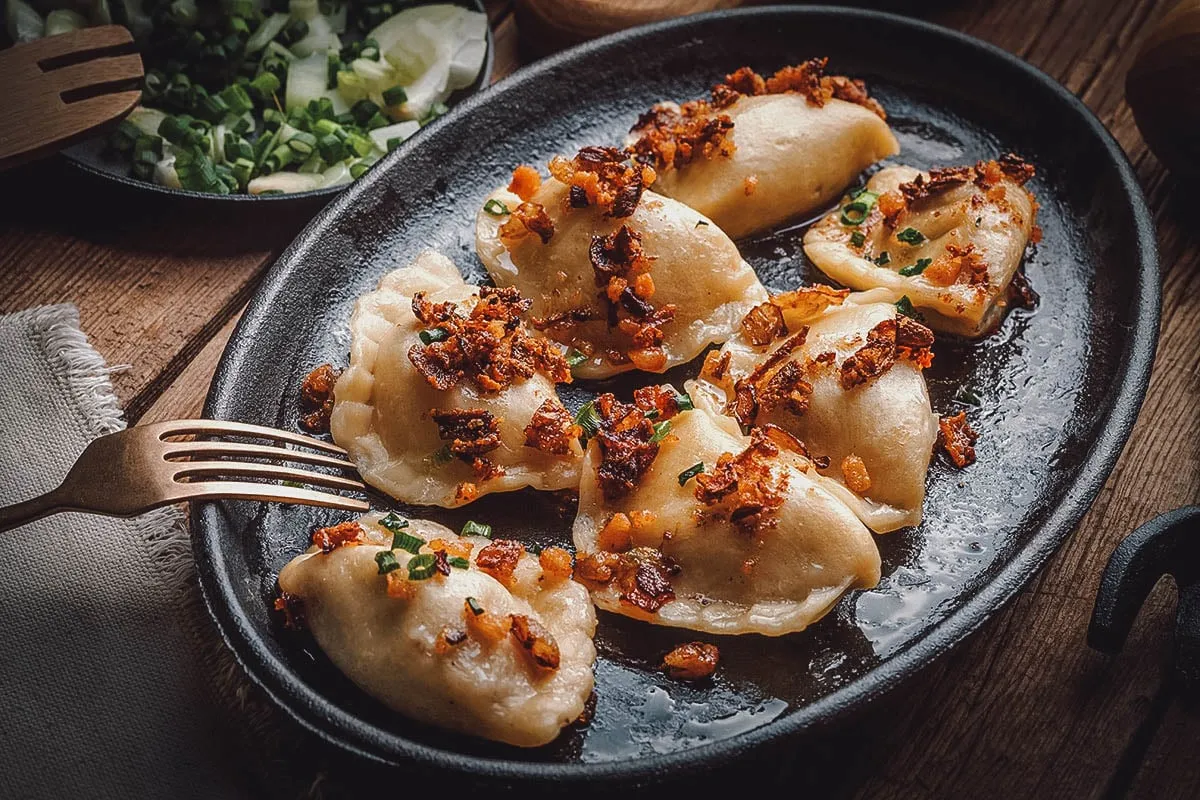Feeding the Homeless with Culture: How One Group Cooks Cheaply for All
Discover how Chicago's Unity Kitchen serves 500+ homeless individuals weekly with culturally diverse meals on just $3 per person, using smart shopping strategies and community donations.


Feeding the Homeless with Culture: How One Group Cooks Cheaply for All
Every Wednesday evening, the aroma of jollof rice, Polish pierogi, and Mexican pozole fills the air at Unity Kitchen, a small community center in Chicago's Humboldt Park neighborhood. What makes this scene remarkable isn't just the incredible diversity of food being prepared—it's that this volunteer-run organization feeds over 500 homeless individuals each week while spending just $3 per person per meal.
"Food is more than sustenance; it's dignity, memory, and connection to home," says Maria Santos, Unity Kitchen's volunteer coordinator and former Jewel-Osco employee. "When someone who's been sleeping on the streets tastes their grandmother's recipe, you see something light up in their eyes."
The Challenge: Quality Nutrition on an Impossible Budget
Unity Kitchen operates on an annual food budget of just $78,000—roughly $1,500 per week to feed hundreds of people. This breaks down to approximately $3 per person per meal, including breakfast, lunch, and dinner service three days a week.
"When we started five years ago, we thought it was impossible," admits Santos. "But we learned that with the right strategies, community partnerships, and a lot of love, you can create miracles in the kitchen."
The organization serves Chicago's homeless population, many of whom come from diverse cultural backgrounds. Rather than serving generic "soup kitchen" food, Unity Kitchen has made it their mission to provide culturally relevant meals that honor the heritage of those they serve.
Smart Shopping Strategies That Stretch Every Dollar
1. Building Relationships with Store Managers
Unity Kitchen's success begins with their shopping strategy. Santos and her team have built relationships with managers at three Jewel-Osco stores and two Aldi locations in their area.
"We introduced ourselves as a nonprofit and asked about their donation policies," Santos explains. "Now, managers call us when they have produce nearing expiration or overstocked items. Last month, we got 50 pounds of sweet potatoes for $10."
Key Shopping Tips from Unity Kitchen:
- Shop during markdown hours (typically early morning or late evening)
- Ask about manager's specials on overstocked items
- Build relationships with butchers for discounted meat cuts
- Time visits around weekly sales cycles
- Use digital coupons strategically for bulk purchases
2. The "Flexible Menu" Philosophy
Rather than planning rigid weekly menus, Unity Kitchen practices "flexible menu planning"—adapting their cooking based on available deals and donations.
"If Jewel-Osco has a great sale on chicken thighs, we might make Korean dakgangjeong one week and Jamaican curry chicken the next," says volunteer chef Robert Kim, a culinary school graduate who donates his time twice weekly.
3. Bulk Buying and Storage Solutions
Unity Kitchen has invested in commercial-grade freezers and dry storage, allowing them to buy in bulk when prices drop. They track prices at multiple stores and stock up during major sales.
"We bought 200 pounds of rice during Jewel's last big sale for $0.79 per pound," Santos notes. "That rice will feed people for three months."
Cultural Cooking on a Shoestring: Real Recipes, Real Impact
Mexican Pozole for 100 People - $47 Total Cost
One of Unity Kitchen's most requested dishes is their hearty pozole, which they prepare using smart substitutions and bulk buying:
Ingredients (serves 100):
- 10 lbs pork shoulder ($30 on sale)
- 5 cans hominy ($7.50 with coupons)
- Dried chiles bought in bulk ($5)
- Onions, garlic, and spices ($4.50)
"We use pork shoulder instead of traditional pork ribs because it's cheaper but becomes incredibly tender when slow-cooked," explains volunteer Maria Gonzalez, whose grandmother's recipe inspired the dish.
West African Jollof Rice - $52 for 100 Servings
This crowd-pleaser uses Unity Kitchen's bulk rice strategy:
Smart Shopping Techniques Used:
- Rice bought in 25-lb bags during sales
- Canned tomatoes purchased with digital coupons
- Chicken thighs used instead of more expensive cuts
- Spices bought from ethnic markets in bulk
"We serve this with a simple cabbage salad made from whatever vegetables are available," says volunteer Ama Asante, who taught the kitchen her mother's recipe.
Polish Pierogi Night - $65 for 400 Pierogi
Once monthly, Unity Kitchen hosts "Pierogi Night," where volunteers spend an afternoon making hundreds of pierogi from scratch:
Cost-Saving Strategies:
- Potatoes bought in 50-lb bags
- Flour purchased from restaurant supply store
- Cheese bought in bulk blocks and grated
- Community members donate eggs and butter
"It's labor-intensive, but it costs less than $0.16 per pierogi to make," Santos calculates. "Store-bought frozen pierogi would cost us ten times that amount."
Building Community Partnerships for Maximum Impact
Restaurant and Grocery Store Partnerships
Unity Kitchen has developed formal partnerships with:
- Three Jewel-Osco locations: Weekly donation of produce nearing expiration
- Local bakery: Day-old bread and pastries donated daily
- Two restaurants: Surplus prepared foods and ingredients
- Suburban food pantry: Monthly supply sharing arrangement
Volunteer Skill Matching
"We realized we had volunteers from dozens of countries," Santos explains. "Instead of having everyone make the same American-style meals, we started pairing volunteers with dishes from their heritage."
This approach has created authentic cultural meals while building community among volunteers:
- Ethiopian volunteers prepare kitfo and injera
- Filipino volunteers make adobo and pancit
- Syrian volunteers create kibbeh and fattoush
- Puerto Rican volunteers prepare pasteles and alcapurrias
The Digital Coupon Revolution
Unity Kitchen has embraced technology to maximize savings:
Coordinated Coupon Strategies
- Volunteers use multiple digital accounts across stores
- Strategic timing of purchases during bonus point events
- Combining manufacturer coupons with store sales
- Using cashback apps for additional savings
"Last month, we saved $247 using digital coupons alone," reports volunteer treasurer David Park. "That money directly translates to feeding more people."
Price Tracking and Planning
Unity Kitchen uses a simple spreadsheet to track prices across stores, helping them identify the best deals:
- Jewel-Osco typically has the best meat sales
- Aldi consistently offers the lowest produce prices
- Pete's Fresh Market provides the best ethnic ingredients
- Costco works for bulk dry goods purchases
Measuring Impact Beyond the Plate
Nutritional Goals on a Budget
Working with a volunteer nutritionist, Unity Kitchen ensures their meals meet basic nutritional requirements while staying within budget:
Weekly Nutritional Targets:
- 50% of meals include fresh vegetables
- All meals provide complete proteins
- At least 30% of weekly offerings include whole grains
- Fresh fruit offered with every dinner service
Community Building Through Food
"We're not just feeding bodies; we're feeding souls," says Santos. "When someone tastes food from their homeland, they remember that they matter, that their culture is valued."
The impact extends beyond nutrition:
- Regular diners report feeling more connected to their cultural identity
- Volunteers learn about different cultures through cooking
- Community members from housed neighborhoods volunteer alongside those experiencing homelessness
- Several former diners have become regular volunteers after securing housing
Challenges and Creative Solutions
Food Safety with Limited Resources
Operating a large-scale food service on a shoestring budget presents unique challenges:
Solutions Implemented:
- Volunteer ServSafe training for all regular cooks
- Donated commercial-grade thermometers and sanitizers
- Partnerships with health department for guidance
- Clear protocols for food handling and storage
Consistent Volunteer Staffing
"Some weeks we have 20 volunteers; other weeks we have 5," Santos admits. "We've learned to plan flexible menus that can work with different staffing levels."
Staffing Solutions:
- Simple one-pot meals for low-volunteer days
- More complex cultural dishes when full teams are available
- Prep work scheduled during volunteer-heavy periods
- Partnership with culinary schools for student volunteers
Transportation and Storage
Getting large quantities of food from stores to the kitchen requires coordination:
- Volunteers with trucks handle bulk purchases
- Refrigerated space shared with other community organizations
- Scheduled pickup times with partner stores
- Strategic storage of non-perishables
Replicating the Model: A Blueprint for Other Communities
Unity Kitchen's success has inspired similar programs in other Chicago neighborhoods and cities nationwide. Santos regularly speaks at conferences about their model:
Key Success Factors
- Strong community partnerships: "You can't do this alone"
- Flexible planning: "Adapt to what's available, not what you planned"
- Cultural authenticity: "Honor people's heritage in every meal"
- Financial transparency: "Every dollar should go as far as possible"
- Volunteer appreciation: "Take care of those who take care of others"
Getting Started Guide
For communities wanting to start similar programs:
Month 1-2: Foundation Building
- Research local homeless population and existing services
- Contact grocery stores about donation policies
- Recruit initial volunteer base
- Secure kitchen space and basic equipment
Month 3-4: Partnership Development
- Build relationships with store managers
- Connect with other nonprofits for resource sharing
- Develop food safety protocols
- Create volunteer training materials
Month 5-6: Program Launch
- Start with simple, one-day-per-week service
- Focus on one or two reliable cultural dishes
- Track costs and impact meticulously
- Gather feedback from both volunteers and diners
Looking to the Future: Scaling with Sustainability
Unity Kitchen recently received a small grant that will allow them to expand to five days per week of service. However, Santos emphasizes that their core philosophy won't change:
"We'll always prioritize dignity and cultural connection over efficiency," she says. "Every person deserves to taste home, no matter their circumstances."
Upcoming Initiatives
- Mobile food service: Bringing culturally diverse meals to different neighborhoods
- Cooking skills classes: Teaching budget cooking techniques to housed community members
- Community garden: Growing culturally relevant produce to reduce costs further
- Recipe documentation: Creating a cookbook of budget-friendly cultural recipes
The Ripple Effect: Beyond the Kitchen
Unity Kitchen's impact extends far beyond the meals they serve. They've created a model that proves cultural sensitivity and budget consciousness aren't mutually exclusive. Their approach has influenced other Chicago nonprofits to reconsider their own food service programs.
"When you show people that you can serve amazing food on an impossible budget while honoring their culture, you're not just feeding them," Santos reflects. "You're showing them that solutions exist, that communities can come together, and that everyone deserves dignity."
The organization now receives calls from nonprofits across the Midwest seeking advice on implementing similar programs. They've shown that with creativity, community partnerships, and respect for cultural diversity, it's possible to provide more than just a meal—you can provide hope, connection, and a taste of home.
Want to Help or Learn More?
Unity Kitchen welcomes volunteers every Wednesday from 2 PM to 8 PM at their Humboldt Park location. They also provide quarterly workshops on budget cooking techniques for community members interested in learning their shopping and preparation strategies.
For those inspired to start similar programs in their communities, Santos offers this advice: "Start small, dream big, and never forget that behind every person you serve is a story, a culture, and a dream. Honor all three."
Unity Kitchen operates at 1847 N. Pulaski Road in Chicago. Volunteer opportunities and donation information available at unitykitchenchicago.org